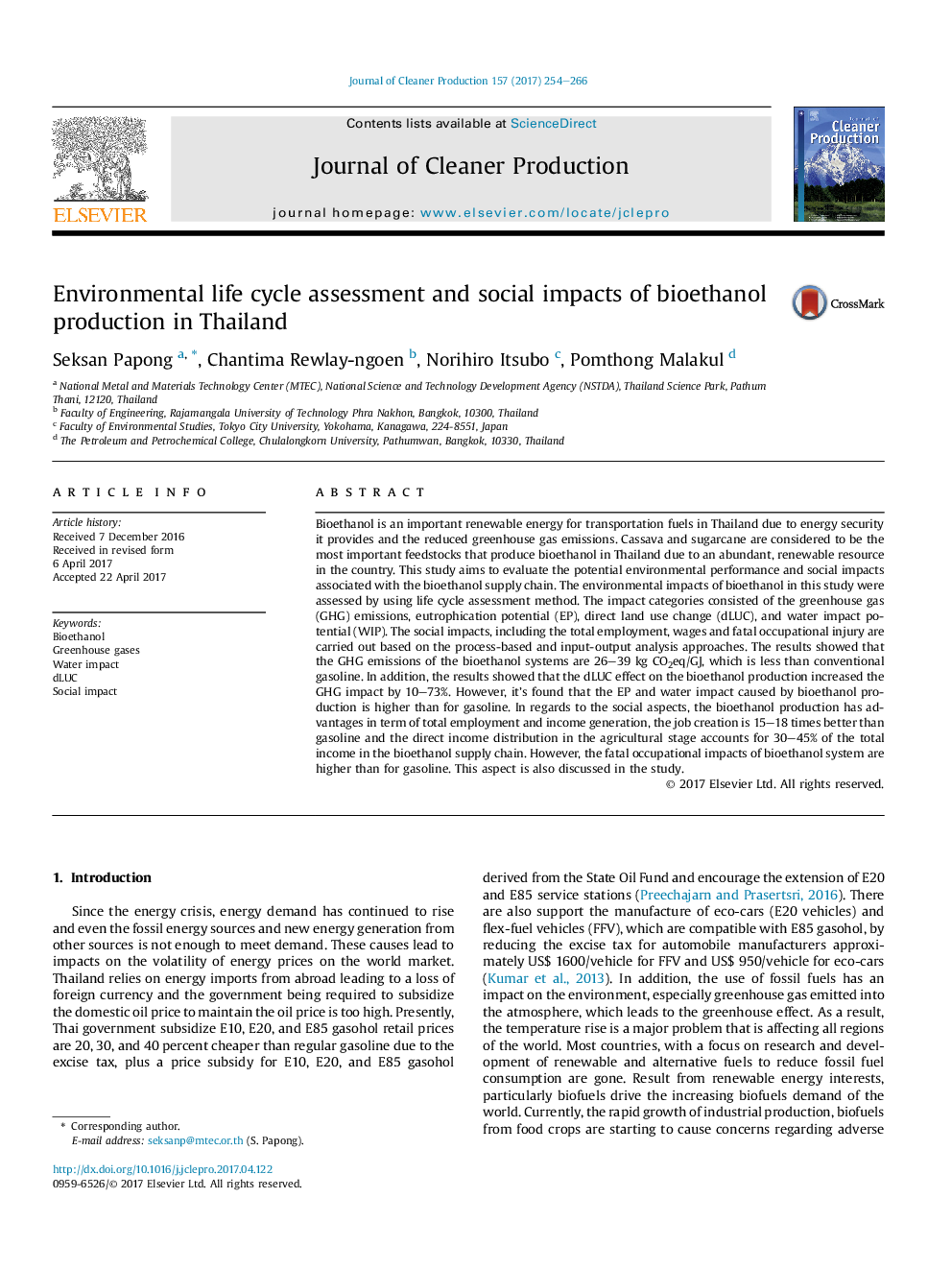| کد مقاله | کد نشریه | سال انتشار | مقاله انگلیسی | نسخه تمام متن |
|---|---|---|---|---|
| 5481183 | 1522097 | 2017 | 13 صفحه PDF | دانلود رایگان |
عنوان انگلیسی مقاله ISI
Environmental life cycle assessment and social impacts of bioethanol production in Thailand
ترجمه فارسی عنوان
ارزیابی چرخه زندگی زیست محیطی و اثرات اجتماعی تولید بیواتانول در تایلند
دانلود مقاله + سفارش ترجمه
دانلود مقاله ISI انگلیسی
رایگان برای ایرانیان
کلمات کلیدی
موضوعات مرتبط
مهندسی و علوم پایه
مهندسی انرژی
انرژی های تجدید پذیر، توسعه پایدار و محیط زیست
چکیده انگلیسی
Bioethanol is an important renewable energy for transportation fuels in Thailand due to energy security it provides and the reduced greenhouse gas emissions. Cassava and sugarcane are considered to be the most important feedstocks that produce bioethanol in Thailand due to an abundant, renewable resource in the country. This study aims to evaluate the potential environmental performance and social impacts associated with the bioethanol supply chain. The environmental impacts of bioethanol in this study were assessed by using life cycle assessment method. The impact categories consisted of the greenhouse gas (GHG) emissions, eutrophication potential (EP), direct land use change (dLUC), and water impact potential (WIP). The social impacts, including the total employment, wages and fatal occupational injury are carried out based on the process-based and input-output analysis approaches. The results showed that the GHG emissions of the bioethanol systems are 26-39Â kg CO2eq/GJ, which is less than conventional gasoline. In addition, the results showed that the dLUC effect on the bioethanol production increased the GHG impact by 10-73%. However, it's found that the EP and water impact caused by bioethanol production is higher than for gasoline. In regards to the social aspects, the bioethanol production has advantages in term of total employment and income generation, the job creation is 15-18 times better than gasoline and the direct income distribution in the agricultural stage accounts for 30-45% of the total income in the bioethanol supply chain. However, the fatal occupational impacts of bioethanol system are higher than for gasoline. This aspect is also discussed in the study.
ناشر
Database: Elsevier - ScienceDirect (ساینس دایرکت)
Journal: Journal of Cleaner Production - Volume 157, 20 July 2017, Pages 254-266
Journal: Journal of Cleaner Production - Volume 157, 20 July 2017, Pages 254-266
نویسندگان
Seksan Papong, Chantima Rewlay-ngoen, Norihiro Itsubo, Pomthong Malakul,
